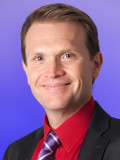非常抱歉,
你要访问的页面不存在,
非常抱歉,
你要访问的页面不存在,
非常抱歉,
你要访问的页面不存在,
验证码:

职称:Professor
所属学校:Texas Christian University
所属院系:College of Science & Engineering
所属专业:Geology/Earth Science, General
联系方式:817.257.6275
Surely the most lasting and rewarding contribution I will ever make to my profession will be shown in the students I have taught. I treasure the idea that I have that rare opportunity to further the success of others and that my role in the preparation of my students will one day be my lasting legacy. As such, I take my role as the teacher/scholar very seriously. In my 19 years of teaching experience as a professor, I have always strived to improve my craft by exploring new and varied educational techniques. In doing so, I have distilled a few basic principles that have consistently proven true for me. These tenets thread through my courses at every level, and have integrated into what I now call my teaching philosophy. My courses and my extramural teaching are designed around these tenets. First, understanding process is the key to functional and retained learning. Students are easily overwhelmed in a malange of details that may now come to them through a multitude of instantaneous media venues. In science, understanding the fundamentals of process and then applying the root logic of cause and effect becomes the key to contextualizing, filtering, and developing a functional use of this vast well of information. Coupled with a willingness and ability to prudently distil and retest one’s own base assumptions, this ability soon distinguishes those as problem solvers who can critically think from those who can merely repeat procedures. My primary goal in teaching is to give each student a firm foundation upon which to build a career of functional knowledge and thought by imparting a working understanding and a lasting appreciation of the processes that govern Earth systems. This exposure opens a door that invites life-long excitement and motivation for learning. As well, this process understanding helps the student to better distil the specifics of any new conundrum that may arise. I teach process by presentation and expectation. Process is emphasized and discussed in all my classes during teaching, as well as in any field or lab or other informal student interaction. My tests ask the student to address the same problems that I as the professional would be asked to solve. Problem solving begins at the introductory level. At the mid-undergraduate level all tests are problem-solving essay questions. At the advanced undergraduate and graduate level testing of skills is mostly by completion of projects. Second, all students within a class will typically learn in differing ways. Students may be tactile, visual, audio, combination, or other types of learners, and all types will typically be in my class simultaneously. To accommodate this, I always teach with a combination of field trips, labs, visual aids, stories, examples, quirky associations, comedy, classical lecture, in what balance appears to be working. I have also adapted a more personal approach. In order to aid in the difficult task of ascertaining whether a classroom student is learning and to assess how I must quickly adapt my approach, I must get close. I have adjusted my teaching style to remove as many barriers as possible between the student and myself. I constantly gage feedback from the class through conversation and questioning as I teach in rooms laid out to accommodate close direct contact. I also take students to the field and lab to place geology within their hands so that, to them, I can make what once were words now tangible. There I can also shed the constraints of the classroom and engage students directly one-to-one. There I learn more directly about their learning needs. Third, some things just defy simple explanations and must be learned by doing. Research projects constantly challenge students with complex problems that have no pat solution or even standard approach. Facing and surmounting such problems hones the adaptive versatility and confidence that a student will need in order to survive in a very fluid job market. This also teaches students the nuances of science in ways that the classroom cannot. For this reason, I regularly bring my research directly to the classroom through student projects that directly augment active research projects. For example, I established the “Big Muddy Expedition”. This project teaches undergraduates (12 per summer; roughly half from TCC) research skills as they decode the processes that shape the Missouri River through collection and analysis of field data. This project is funded by the NSF and the USGS through their respective educational initiatives. Finally, I attempt to always teach from the student’s prospective. Teaching a familiar subject is much like giving directions to your own home to a first-time visitor. Omission of a turn that has become automatic to you will leave your guest wandering for hours in hopeless frustration. No matter what the course, I always put myself in the student’s position and try to anticipate the full framework of knowledge and explanation the student will need in order to keep on track and digest the entire scope of the material. This is a matter of eternal vigilance.
In my 19 years of teaching experience as a professor, I have always strived to improve my craft by exploring new and varied educational techniques.